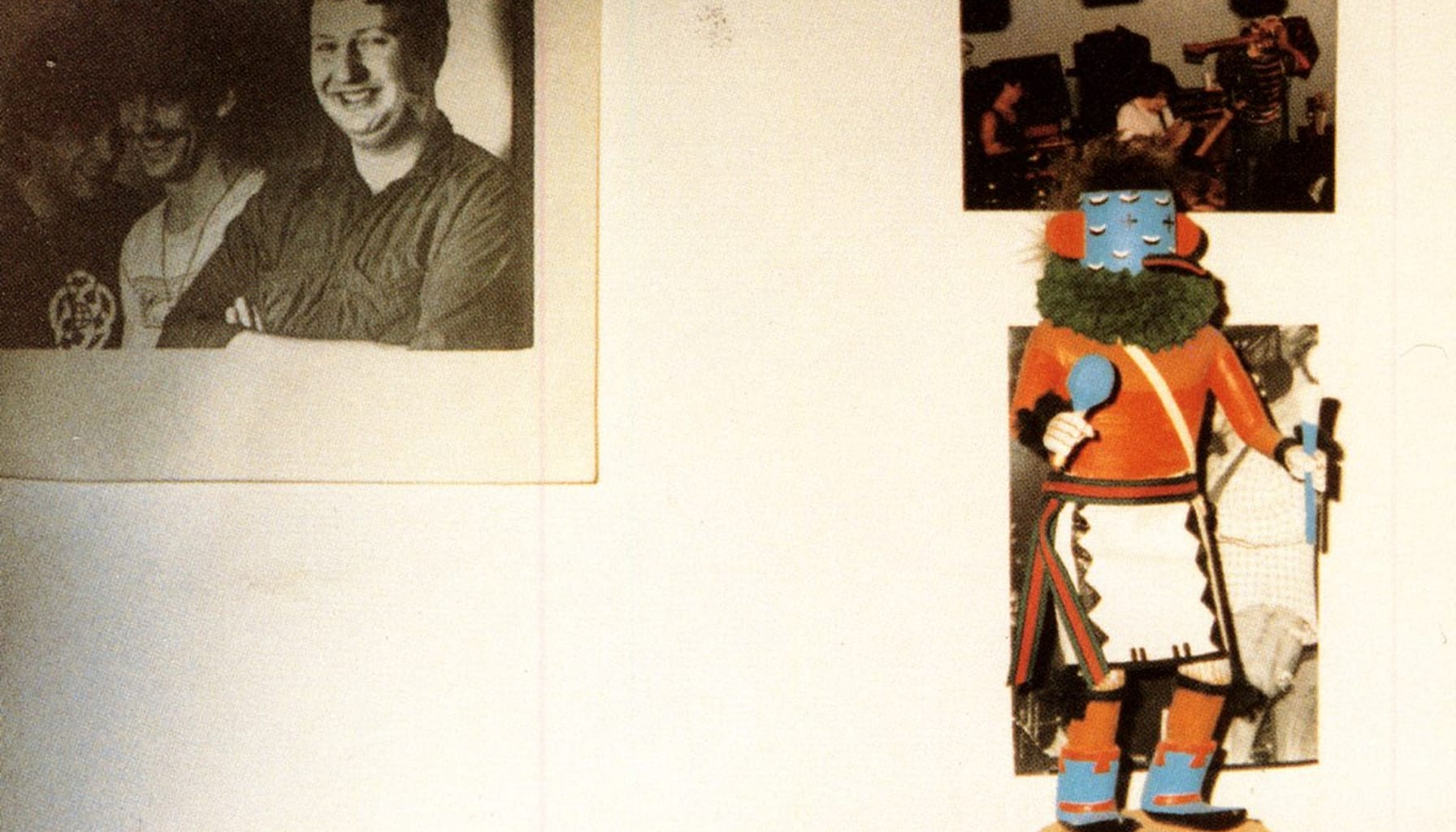Blindspotting: fIREHOSE, "If'n"
Fixing musical blind spots, one album at a time

The Legacy: The sudden, tragic death of MINUTEMEN singer D. Boon brought the band to an immediate halt in December of 1985, and initially, Boon's bandmates — bassist Mike Watt and drummer George Hurley — were so devastated by the loss that they planned to retire from music altogether. Enter guitarist/singer Ed Crawford, who claims he was duped by Camper Van Beethoven's bassist into auditioning for a band that didn't even exist:
Victor Krummenacher, the bassist for Camper, I happened to ask him after a gig what was happening with the remaining MINUTEMEN and he said he heard they were auditioning guitar players. I don't know if he was making that up just to get rid of me, but that's what he told me. That got the ball rolling. The next thing you know, here I am.
This was all the encouragement Crawford needed to ferret out Watt's phone number and try to arrange an audition; after Watt waved him off, Crawford traveled to Southern California and started trying to wear him down in person. This is the type of story that typically ends with someone having a restraining order filed against them, but in this case, it led to Crawford jamming with Watt and Hurley, which (obviously) went well enough that they decided to form fIREHOSE.
The trio's first album, 1986's Ragin', Full-On, is a snapshot of a nascent creative unit whose track listing was partly cobbled together using pre-existing leftover material, but by the time they got down to work on If'n the following year, they were a fully functioning group, with all three members contributing to the songwriting — no doubt at least partly a result of the fact that these guys were all inveterate road dogs who constantly gigged like hell. It didn't allow them to completely escape the shadow left by MINUTEMEN, but it went a long way toward proving this was a lot more than an uninspired sequel.
First Impressions: If you read up on fIREHOSE before you've heard any of their music, you're liable to be at least slightly bewildered by the experience of actually listening to it. Much has been written about this band's funk and jazz influences, to the extent that you wouldn't be out of line for expecting to hear something like Fishbone, but that's absolutely not what's on offer here. That being said, it's also fairly difficult to hear much of a punk influence; overall, If'n is a sort of low-budget bouillabaisse of dozens of ingredients, all vigorously stirred together to create an impressively layered blend.
Of course, I'm saying this with the benefit of nearly 40 years of hindsight. It's easy to imagine this record being received as punk or post-punk or "alternative" in 1987, because it really is a lot more ragged than anything you were ever going to hear on Top 40 radio — but in almost every way that matters, it's actually really polished and tight. Watt and Hurley were one of the most criminally unsung rhythm sections of the '80s and early '90s, and throughout If'n, the songwriting and arrangements are several steps above where they needed to be. You hear "punk" and you're tempted to think "basic"; fIREHOSE were relatively basic in the sense that they were a trio, but these songs aren't bashers that an early music student could play. There's usually something extra going on, and not in a flashy way — this sounds like the work of musicians who were honing their chops on a daily basis, and looking for ways to test their limits in the studio.
If'n is musically tight and sounds like the result of a lot of hard work, but it's also laced with an infectious sense of humor. Watt takes the mic for a handful of songs, all of which are essentially spoken-word pieces, and most of which wouldn't have sounded out of place on any random episode of Doctor Demento's radio show. "Making the Freeway" and "Me & You, Remembering" sound a bit like Primus B-sides, and speaking as someone who has always avoided Primus like the plague, I mean that as something like a compliment.
Ultimately, this is an admirably eclectic set of songs — one that I suspect would have fared far better commercially if it hadn't been released via SST. I'm sure fIREHOSE would have had to deal with all sorts of bullshit if they'd signed to a major, but by and large, this is pretty mainstream stuff; with a little extra sweetening and a lot of promotional muscle, it isn't hard to imagine songs like "Sometimes" or "Honey, Please" doing well as singles, and if it had been released a few years later, "In Memory of Elizabeth Cotton" (featuring a vocal cameo from Phranc!) could have slotted into the "unplugged" fad quite neatly.
All of which is to say that after several decades of being given the false impression that fIREHOSE were meter-pegging noise merchants, it's an awfully nice surprise to discover that they were really slightly funkier cousins of the Replacements. I shall now begin my long-overdue exploration of the Watt oeuvre, starting with the Dos album that the 17-year-old shared with me a couple of days ago, which was the impetus for my If'n listening party in the first place.
Hidden Gems: It's probably pretty silly to deem anything from this album a "hidden gem," but I'm surprised to see how few streams "Anger" has racked up in comparison to its If'n brethren, so I'm picking that. (It's also a nice callback to Dos, since it was co-written with Watt's Dos bandmate and ex-wife, former Black Flag bassist Kira Roessler.)
